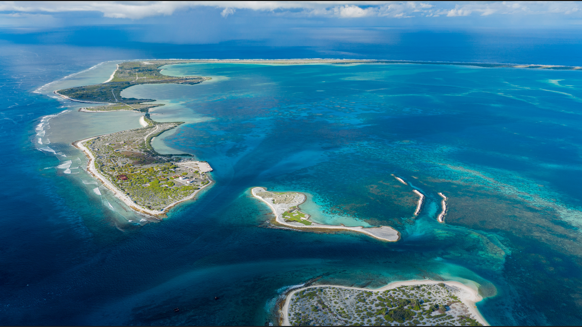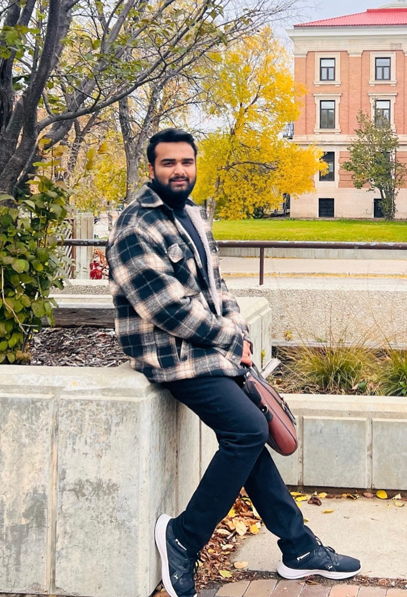
Countries, such as Kiribati, are producing climate refugees as a result of threats from rising ocean levels. Credit: Lightning Strike Pro
Fair treatment for an overlooked group of refugees
Ethics fellowship offers financial support to pursue research in human rights for those impacted by climate change
Nabil Iqbal is in the second year of the Master of Human Rights program in the Faculty of Law. Iqbal’s research has examined the impact of climate change from a human rights perspective and global issues conflicting with human rights law. Currently, he is keenly interested in finding ways to help improve the rights of an often overlooked refugee group – those who are forced to move across borders because of the threats to their homeland from climate change.
Iqbal is a 2023-24 recipient of a Centre for Professional and Applied Ethics (CPAE) Graduate Fellowship. The centre offers annual fellowships to both academics, faculty and instructors, and graduate students at UM. CPAE’s mandate is to promote interdisciplinary research on applied ethics in all areas of practical and professional life. The fellowships are open to individuals from all fields and all faculties, and this year’s application deadline is February 28, 2024.

Nabil Iqbal
The fellowships aim to support researchers in the field of ethics and to encourage those in other fields to consider the ethical implications of their work, to integrate ethics into their research and to promote understanding of ethics as it relates to their areas of study.
Iqbal’s present research is his third exploration into the theme of climate refugees. Previously, he has looked at the lack of legal protections under human rights law for climate refugees in Kiribati, an island country in Micronesia that may potentially be the first country to be swallowed into the ocean as a result of rising sea levels due to climate change.
Iqbal sees a gap in fairness and protection for people displaced by climate change. “Normally, refugees escaping persecution get protection under international law,” explained Iqbal. “Surprisingly, climate refugees don’t have that safety net, and they end up being sent back or put in detention camps, facing more problems and rights violations.”
The ethical piece of his research is “pushing for fair treatment and legal protection for these vulnerable individuals” by looking at “why the current international refugee and human rights laws aren’t protecting this group and what changes are needed to the laws so climate refugees can be protected.”
The $3,000 graduate student fellowship allows Iqbal to focus on his work without financial worries. But, just as importantly, he notes that it is the support from the researchers, fellow students and professional connections in the CPAE network that serve as a “crucial catalyst for my academic journey and career development.”
Iqbal hopes that his research will raise awareness of the challenges climate refugees face, as well as ultimately contribute to making the rules fairer and more protective for those displaced by climate change. “I hope my research can help others by showing them how they can be legally protected,” he shared. “For example, someone in Kiribati might learn from my work how to successfully move to a new country for safety and support.” Iqbal also hopes his research can influence future policy, strengthening refugee and human rights law to better address the specific challenges faced by the growing number of climate refugees across the globe.
Applications to the CPAE Ethics Graduate Fellowships and Research Fellowships for faculty are due February 28, 2024.






